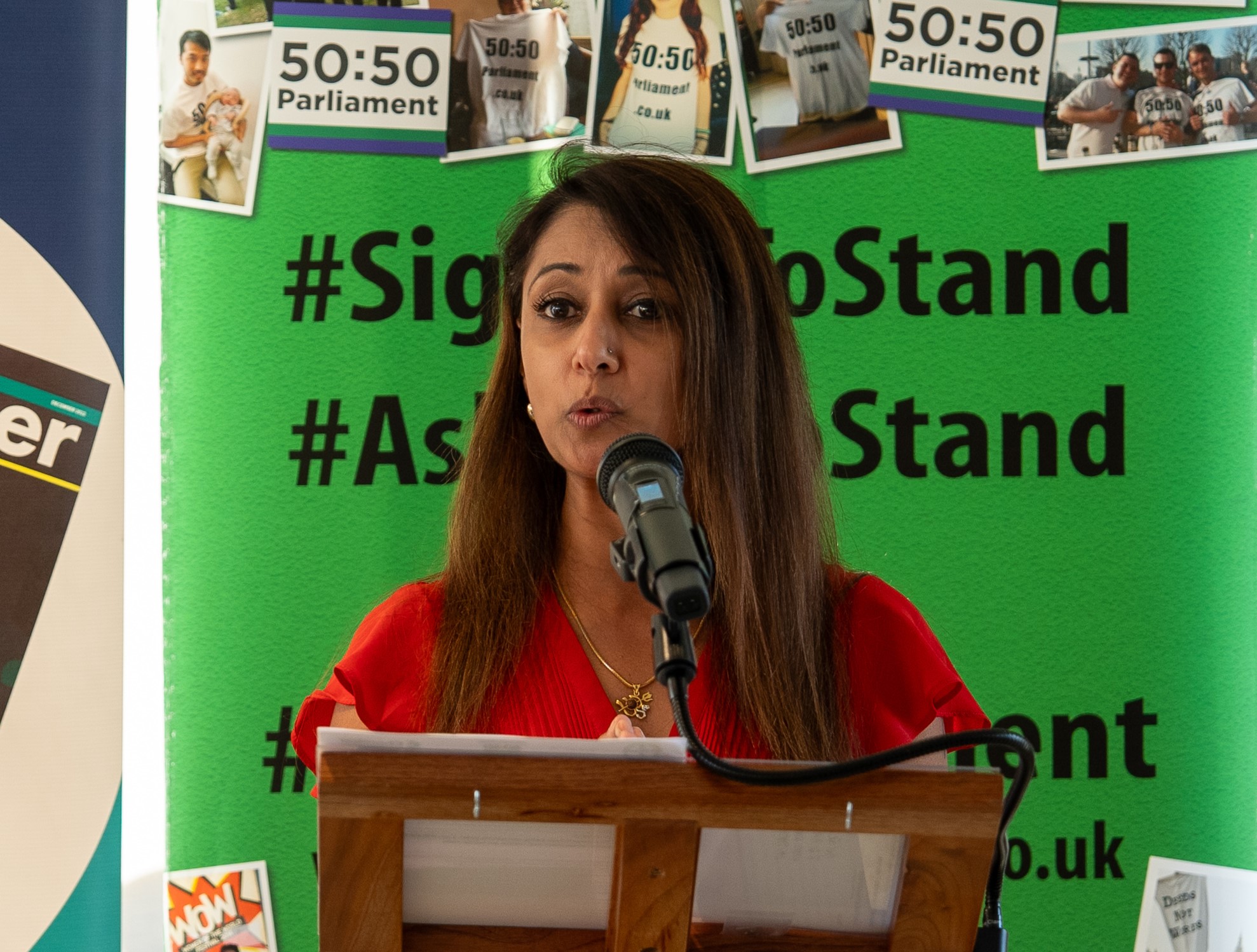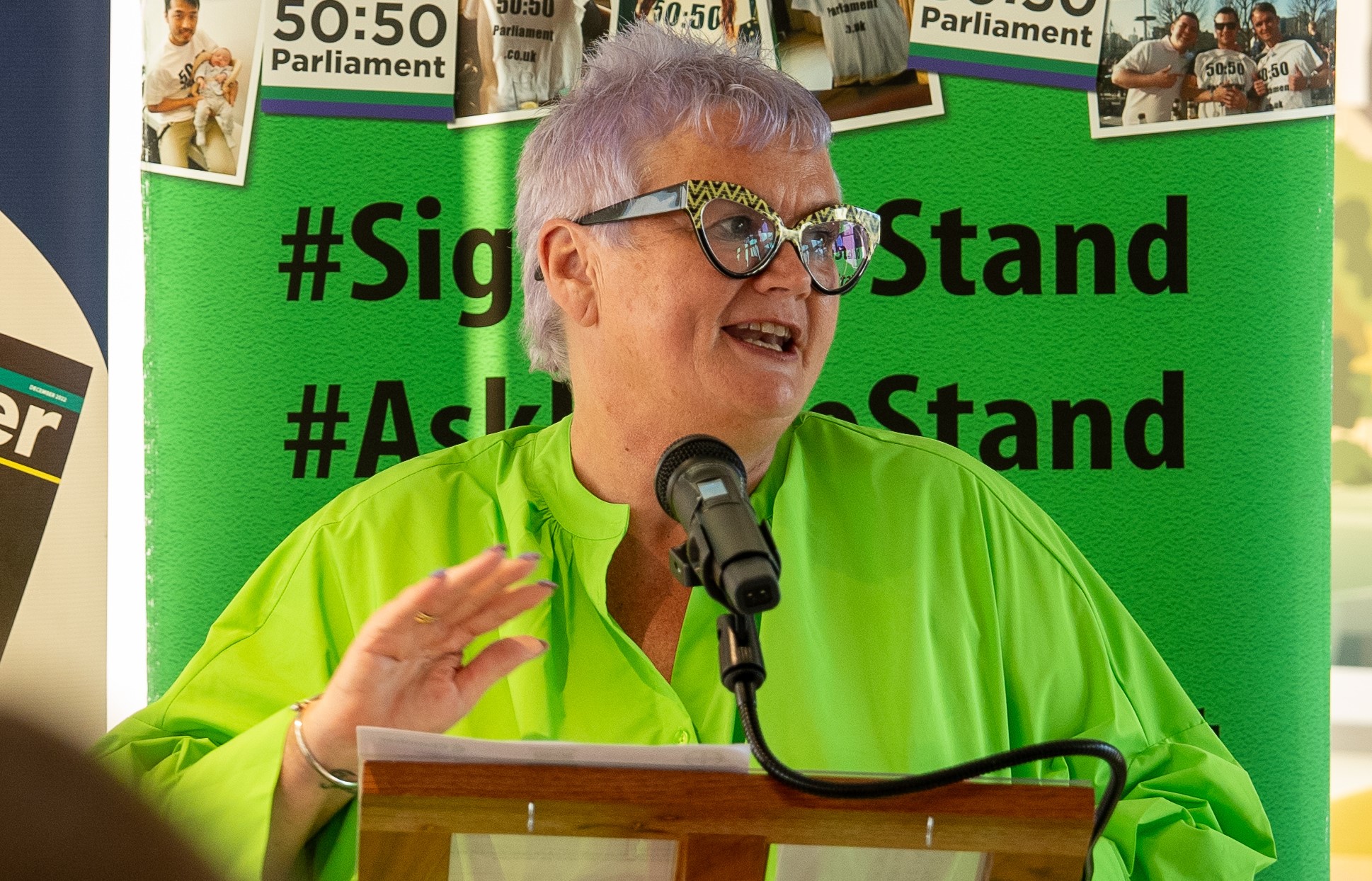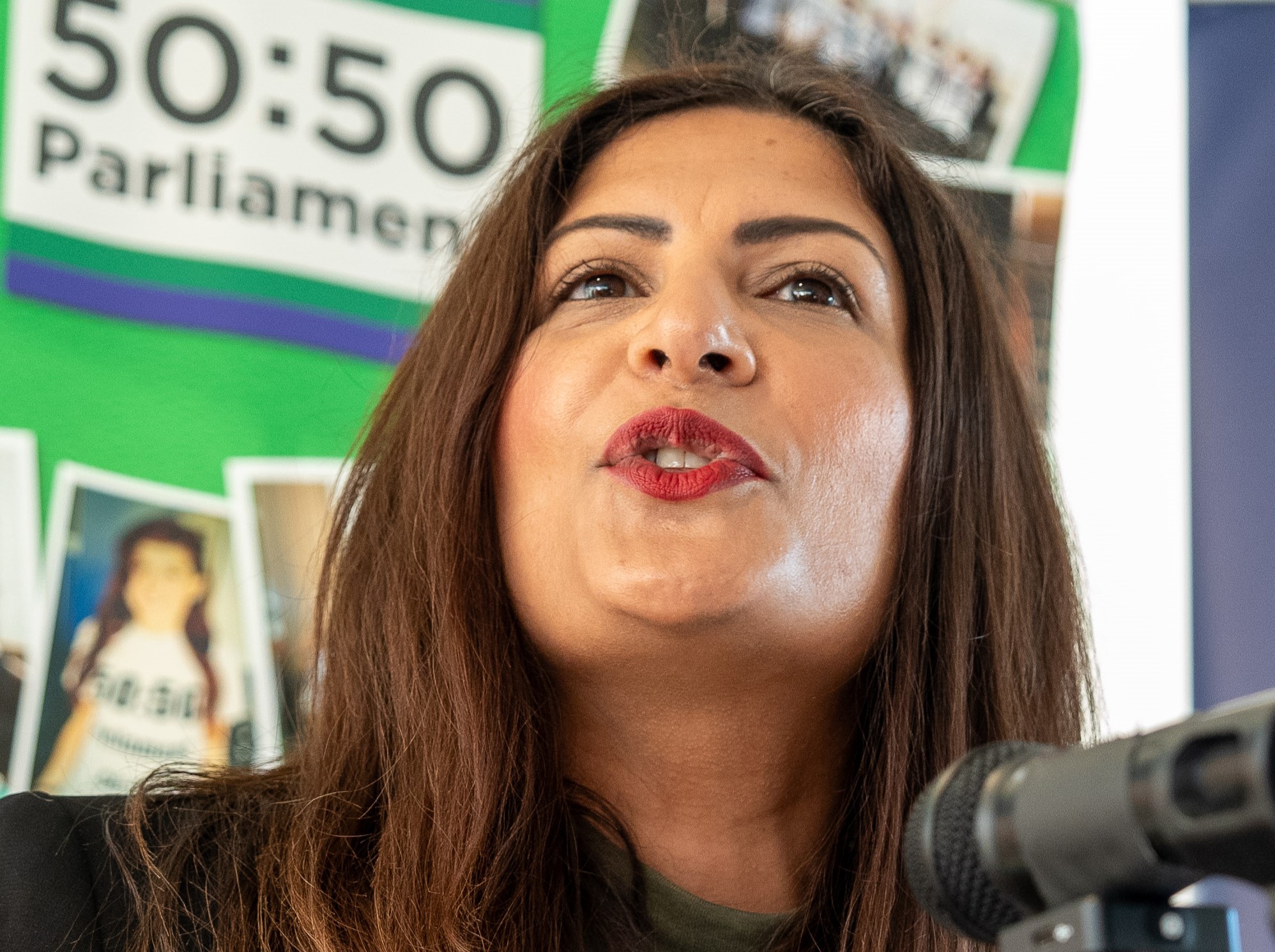Parliamentary event calls for action on improving women's health
MPs joined with pharmaceutical and women’s health experts to celebrate the record number of women elected to Parliament. Credit: Chamber UK.
A “Welcome to Parliament” reception brought together women MPs, experts from the pharmaceutical industry, and senior health leaders to celebrate the record number of women elected at the general election and to discuss the transformative impact this could have on women’s health.
When the nation awoke on the morning of 5 July 2024, it was not just to a new government. It was also to a very new House of Commons. Half of the representatives elected by the British people had never been an MP before.
Significantly, the newly elected House contains more women MPs than at any point in British history. While there remains more work to be done to achieve full gender parity, the proportion of women elected to Parliament now stands at more than 40 per cent for the first time, with 263 female MPs.1
A recent reception, organised by Chamber UK and run in partnership with 50:50 Parliament, and sponsored by pharmaceutical company Bayer UK, brought together women MPs from across the political spectrum to congratulate them on their election successes.2 The vibrant gathering was also an opportunity to discuss how greater representation in Parliament could potentially drive improvement in women’s healthcare.
Lyanne Nicholl, CEO of 50:50 Parliament which campaigns to improve representation and help women progress in politics, described the event as “incredible,” reflecting the energy and optimism in the room. She also highlighted the importance of increased representation in policy discussions about health.
“It really solidifies the necessity of what 50:50 Parliament is doing,” she told PoliticsHome. “We need women in the room, shaping policy, especially when it comes to matters that only women have intimate knowledge of, such as women’s health.”
Shobhna Ladva, from event sponsor Bayer UK, helped to set the context by reminding attendees of the stark challenges that remain for women when it comes to accessing routine healthcare.
“20 per cent of our population are females of reproductive age,3,4 yet access to long-acting reversible contraception remains challenging,” she said. “We have all these women that experience heavy menstrual bleeding. There are also some who suffer as they go through menopause.5 Yet some struggle to get an accurate or early diagnosis from their healthcare professional.6 We know that 10 per cent of women leave their jobs because of menopause.7 That is not good enough."
 Bayer UK’s Shobhna Ladva told attendees about the challenges facing women when accessing routine healthcare. Credit: Chamber UK.
Bayer UK’s Shobhna Ladva told attendees about the challenges facing women when accessing routine healthcare. Credit: Chamber UK.
"Shobhna also emphasised the exciting opportunity that the presence of more legislators with lived experience of women’s health opens up. The goal, she said, is ultimately about improving access to high-quality care at all stages of a woman’s life.
“At Bayer, we have spent over 100 years really trying to make a difference in women's health through pioneering research and innovation,” she told attendees. “We believe that regardless of your age, all women should be able to access women's health services throughout their lives.”
Shobhna’s passionate plea to improve access, particularly for communities that are currently disadvantaged, emerged as a key theme throughout the evening. Speaking alongside a range of leading women from entertainment, medicine, and campaigning were several female MPs, both established and new to the Commons. Despite political differences, what they all shared was a belief that the presence of more women MPs can now deliver a step change in how women’s health issues are addressed.
Labour MP Carolyn Harris chaired the Menopause APPG prior to the general election and is a longstanding campaigner on women’s health. She spoke about her own experiences of menopause and the need to break the taboos that often exist around women’s health issues. Harris also issued a call to arms to women MPs taking their seats for the first time, reminding them that they now have an opportunity to deliver positive change.
 Longstanding women's health campaigner, Carolyn Harris MP. Credit: Chamber UK.
Longstanding women's health campaigner, Carolyn Harris MP. Credit: Chamber UK.
“To every single woman who has come here as a new parliamentarian today - never be afraid to campaign on what you believe in,” she advised. “If you're passionate about it, you will make a difference.”
One of that new intake of MPs is Emily Darlington, the new Labour MP for Milton Keynes Central. Like Harris, Darlington shared her own experience of the challenges of accessing menopause support. During COVID, she recalls, she was forced to wait more than 18 months for an appointment with a consultant.
Such delays in treatment and diagnosis impact women’s lives. Recently elected Liberal Democrat MP Vikki Slade strongly believes that part of the solution may sit with better use of data and more training for frontline healthcare professionals.
“The data that the NHS holds about us can be used in a really intelligent way in terms of diagnosis and treatment,” Slade explained to guests. “And we need to ensure that our doctors are trained to provide the very best care for women by introducing a mandatory teaching assessment on women's health as they graduate.”
Birmingham Edgbaston MP Preet Kaur Gill MP acknowledged that good progress has been made in recent years, particularly with the publication of the Women’s Health Strategy. However, Gill was equally clear that much more remains to be done, highlighting NHS data showing that almost 600,000 women are on waiting lists for hospital-based gynaecological services.8
 Preet Kaur Gill MP gave an impassioned plea to turn intentions into action. Credit: Chamber UK.
Preet Kaur Gill MP gave an impassioned plea to turn intentions into action. Credit: Chamber UK.
“Women's health is too often an afterthought,” she said. “The UK has one of the largest female health gaps in the world and the largest for the G20.9 We are underrepresented in clinical trials, we often feel we have not been listened to properly by medical professionals, and the national state of maternity care is still often poor.”
Like other speakers, Gill is pleased to see the promise of increased investment to train thousands more midwives and health visitors. However, she also argued that more attention must be paid to the disparities in access to care that particularly affect women from many minority communities. It was a point echoed by Dr Janet Barter, current President of the Faculty of Sexual and Reproductive Healthcare.
“Maternal mortality for black women is currently almost four times higher than for white women, and there are also significant disparities for Asian women and those of mixed ethnicity,” she explained.10 “This is shocking, and crucially, preventable and avoidable. With the right policies and practises in place we can do something about it.” Dr Barter also outlined the new working group the FSRH is setting up with partners such as the Motherhood Group on this important issue as part of the work of the FSRH Hatfield Vision; a framework of 16 Goals and 9 Actions aimed at providing solutions to tackle the unacceptable inequalities faced by people across the women, girls and all SRH users by 2030.11
But turning data and passion into impact requires commitment to action. That action, Gill concluded, can now be accelerated by the collective voice of the increased number of women MPs in the House.
“We need to finally see intentions turned into action,” she said. “And that's where all of us collectively have a role to play. Let's make this Parliament one where we take new strides to improve women's health outcomes for good.”
That upbeat closing message reflected a broader sense of energy and optimism in the room, as MPs new and old came together to advocate for positive change. The hope is that these discussions strike a chord with parliamentarians across all parties, ensuring that legislators make women’s health a priority.
This article has been initiated and funded by Bayer Plc, who are fully responsible for the content. This article will be reviewed in August 2026.
Bayer has provided sponsorship funding, which supported logistics and materials for this event. Chamber maintained complete editorial control for the event and outputs.
Job bag number: PP-PF-WHC-GB-1507
Date of preparation: September 2024
Images source and credit: Chamber UK
1. 'Female Members of Parliament', Richard Kelly, House of Commons Library, Research Briefing, July 2024. Last accessed August 2024.
2. Bayer has provided sponsorship funding, which supported logistics and materials for this event. Chamber maintained complete editorial control for the event and outputs.
3. Women of reproductive age (15-49 years) population (thousands), World Health Organization. Last accessed August 2024.
4. Population percentage by select age groups – both sexes/female, United Nations, 2024. Last accessed August 2024.
5. 'Women forced to attend up to 10 GP appointments to get menopause diagnosis, study finds', The Independent, May 2024. Last accessed August 2024.
6. 'Women in UK waiting almost nine years for endometriosis diagnosis, study finds', The Guardian, March 2024. Last accessed August 2024.
7. 'Menopause and the workplace', NHS Employers, February 2024. Last accessed August 2024.
8. 'Gynaecology waiting lists leave thousands of women waiting too long for care', RCOG, April 2024. Last accessed August 2024.
9. 'Women’s health outcomes: Is there a gender gap?', Nicole Winchester, House of Lords Library, July 2021. Last accessed August 2024.
10. 'Maternal mortality 2019-2021', MBRRACE-UK, October 2023. Last accessed August 2024.
11. 'The FSRH Hatfield Vision', FSRH, July 2022. Last accessed August 2024.
